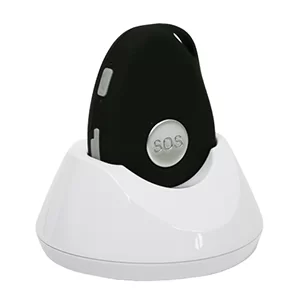The wellbeing of our loved ones is always important to us. We want to see them healthy, happy, and living life to the full. Therefore, it can be distressing when our elderly parents struggle to look after themselves. This is particularly true if they are refusing to eat. Eating is an important part of everyone’s daily routine, as it provides our bodies with the energy we need to accomplish our goals.
What do you do, then, if your elderly parent is refusing to eat?
The Importance of a Healthy Diet
Eating well is crucial for our wellbeing. This becomes especially relevant in later life, as our bodies become less efficient at processing nutrients. A poor diet can lead to weaker bones and muscles, which increases the likelihood of falls. Eating healthily gets more essential vitamins and minerals into our systems, improving health. Moreover, when our bodies feel good, our minds benefit too.
Identifying Why They Are Refusing to Eat
Before you can take any steps to support your elderly parent, it is important that you understand their reasons for refusing to eat. Are they experiencing a health problem that is affecting their appetite? Is something causing discomfort when they eat? By identifying the cause of their refusal, it is easier to address it.
Loss of Routine
Eating meals at set times in the day helps to encourage appetite. If your elderly parent has lost this sense of routine, their willingness to eat may be impacted. Tiredness and boredom can contribute to this, as they start overlooking mealtimes and choosing to snack throughout the day instead. Constantly eating small amounts prevents the body from building up an appetite, leading to a refusal to sit down for a full meal.
Loneliness
One of the most significant problems faced by elderly people in the UK is loneliness. More than half a million older people go at least five days a week without seeing people. It’s common for people not to want to eat alone, as doing so can remind them that they have no one to talk to. Meals are often social events, after all, so your elderly parent refusing to eat may be a cry for help.
Health Issues
Is it possible that your parent is suffering from a health issue? They may be refusing to eat because they are experiencing digestive difficulties. Alternatively, they may have a painful tooth that makes eating unpleasant. It could be that the act of eating itself isn’t the problem, but they are experiencing pain that distracts them from being hungry.
How to Stop Your Elderly Parent from Refusing to Eat
Identifying your loved one’s reasons for refusing to eat is, of course, only part of the solution. If those factors aren’t addressed, they are likely to continue refusing to eat, which can then further impact their health.
Spend Time with Them
One of the first steps to encouraging your loved ones to eat is to be involved with their life. As we have addressed, loneliness can be a leading cause of elderly people refusing to eat. Spending more time with them provides you with an opportunity to speak with them about their loss of appetite, as well as warding off the effects of isolation. Something as simple as popping over for some sandwiches at lunchtime could help reassert a routine, as well as boosting their mood.
Dietary Changes
Sometimes your loved one may just need a change of diet. It could be that they are refusing to eat because they are bored of eating the same food every week. Or they might be struggling to eat their meals because of a health complaint. Working with them to identify suitable substitutes at mealtimes could help get them eating again.
Higher calorie foods, for example, may benefit them in later life. Higher energy intake can combat tiredness and help get them through the day. Foods like fatty fish, eggs, or extra buttery mashed potato can all make a difference. Choosing softer foods, too, may benefit them if they are having difficulty chewing.
Snacks
Although you should encourage your elderly parents to eat full meals at regular times, the occasional snack can help to boost their appetite. What is important is that they are eating healthy snacks in moderation. There is nothing wrong with an extra yoghurt to get some calcium into their system, or an apple or two as the day goes on.
They could even have extra healthy snacks during the day and have smaller meals if this helps to stop them from refusing to eat. It is better that they are eating little and often rather than not at all. You could also work with your elderly parent to transition from a snack-based diet to a more meal-centric one.
Meal Plans
Sometimes your elderly parent may become indecisive about their meals. This could lead to them refusing to eat because they can’t be bothered to choose a meal. Working with them to formulate a weekly meal plan can help to encourage them to eat at routine times, and also gives them something to look forward to. One entry on the plan, for example, could involve you coming over to cook a roast with them.
Knowing what they are eating and when can help encourage your loved one to stick to their routine. This is especially true if they have all the ingredients at the ready following a weekly shop. Often, planned meals can also be healthier, especially compared to ready meals and takeaways.
Consult a Doctor
If your elderly parent is refusing to eat, then it may be worth arranging a doctor’s appointment to rule out underlying health problems. Identifying special dietary needs or medical conditions can then provide the means for getting them eating again. A doctor will also be able to recommend additional solutions relevant to your parent’s needs.
Additional Support from Careline365
If your elderly parent is refusing to eat, they may be more likely to have an accident at home. Not eating can lead to dizziness and falls. If this happens, it is important that your loved one can call for help.
By choosing a Careline alarm, your elderly parent will be in safe hands 24/7, 365 days a year. All they need to do is press the button on their pendant alarm, and they will be put in touch with our professional Care Team. By talking to your loved one over the alarm unit, they will assess the situation and alert any emergency contacts. If necessary, they can also contact the emergency services on your loved one’s behalf.
This means help can be on its way to your elderly parent within minutes of a fall.
To find out more about our alarm service, check out our detailed guide. You can find more information, as well as helpful tips like these, on our blog. If you have any questions about the Careline service, please don’t hesitate to get in touch. Our helpful team can be reached on 0800 030 8777.
Editor's Note: This article was updated on 26th April 2024 to reflect current information.
Essential Plan
Basic pendant
- Not included, Automatic Fall Detection
- Included, 100 Metre Range
- Included, Wearable on Wrist or Neck
- Included, Waterproof
- Included, No Need to Charge
- Included, Easy to Activate
Plug-in Base Unit
- Included, 24/7 Monitoring Service
- Included, Lifetime Warranty
- Included, Plug-In, Easy Set Up
- Not included, No Phone Line Needed
- Not included, Our Fastest Connection Time

Plug-in Base Unit + Basic pendant

Basic pendant
- Not included, Automatic Fall Detection
- Included, 100 Metre Range
- Included, Wearable on Wrist or Neck
- Included, Waterproof
- Included, No Need to Charge
- Included, Easy to Activate
Plug-in Base Unit
- Included, 24/7 Monitoring Service
- Included, Lifetime Warranty
- Included, Plug-In, Easy Set Up
- Not included, No Phone Line Needed
- Not included, Our Fastest Connection Time
Rising to £22.67 per months after 3 months
Essential+Plan
Save £80 if paid annually
SmartTrigger Pendant
- Included, Automatic Fall Detection
- Included, 600 metre range
- Included, Wearable on Wrist or Neck
- Included, Waterproof
- Included, No Need to Charge
- Included, Easy to Activate
SmartLife Hub
- Included, 24/7 Monitoring Service
- Included, Lifetime Warranty
- Included, Plug-In, Easy Set Up
- Not included, No Phone Line Needed
- Included, Our Fastest Connection Time

Rapid Connect Hub + SmartTrigger Pendant

SmartTrigger Pendant
- Included, Automatic Fall Detection
- Included, 600 metre range
- Included, Wearable on Wrist or Neck
- Included, Waterproof
- Included, No Need to Charge
- Included, Easy to Activate
SmartLife Hub
- Included, 24/7 Monitoring Service
- Included, Lifetime Warranty
- Included, Plug-In, Easy Set Up
- Not included, No Phone Line Needed
- Included, Our Fastest Connection Time
Get 3 months free by paying annually
Complete Plan
RecommendedOur Safest AlarmSave £100 if paid annually
Fall Detector
- Included, Automatic Fall Detection
- Included, 300 Metre Range
- Included, Wearable on Wrist or Neck
- Included, Waterproof
- Included, No Need to Charge
- Included, Easy to Activate
SmartLife Hub
- Included, 24/7 Monitoring Service
- Included, Lifetime Warranty
- Included, Plug-In Anywhere, Easy Set Up
- Included, No Phone Line Needed
- Included, Our Fastest Connection Time

Rapid Connect Hub + Fall Detector

Fall Detector
- Included, Automatic Fall Detection
- Included, 300 Metre Range
- Included, Wearable on Wrist or Neck
- Included, Waterproof
- Included, No Need to Charge
- Included, Easy to Activate
SmartLife Hub
- Included, 24/7 Monitoring Service
- Included, Lifetime Warranty
- Included, Plug-In Anywhere, Easy Set Up
- Included, No Phone Line Needed
- Included, Our Fastest Connection Time
Get 3 months free by paying annually
GPS Pendant Plan
Save £88 if paid annually
GPS Location Tracking + Inbuilt Speaker

- Included, Go Anywhere Alarm
- Included, GPS Alarm Pendant
- Included, GPS Location Tracking
- Included, Optional Fall Detection
- Included, Inbuilt Speaker
- Included, Charging Base Station
Get 3 months free by paying annually
GPS Pendant Plan
- Go Anywhere alarm
- GPS Alarm Pendant
- GPS Location Tracking
- Optional Fall Detection
- Inbuilt Speaker
- Charging Base Station

Get 3 months free by paying annually




